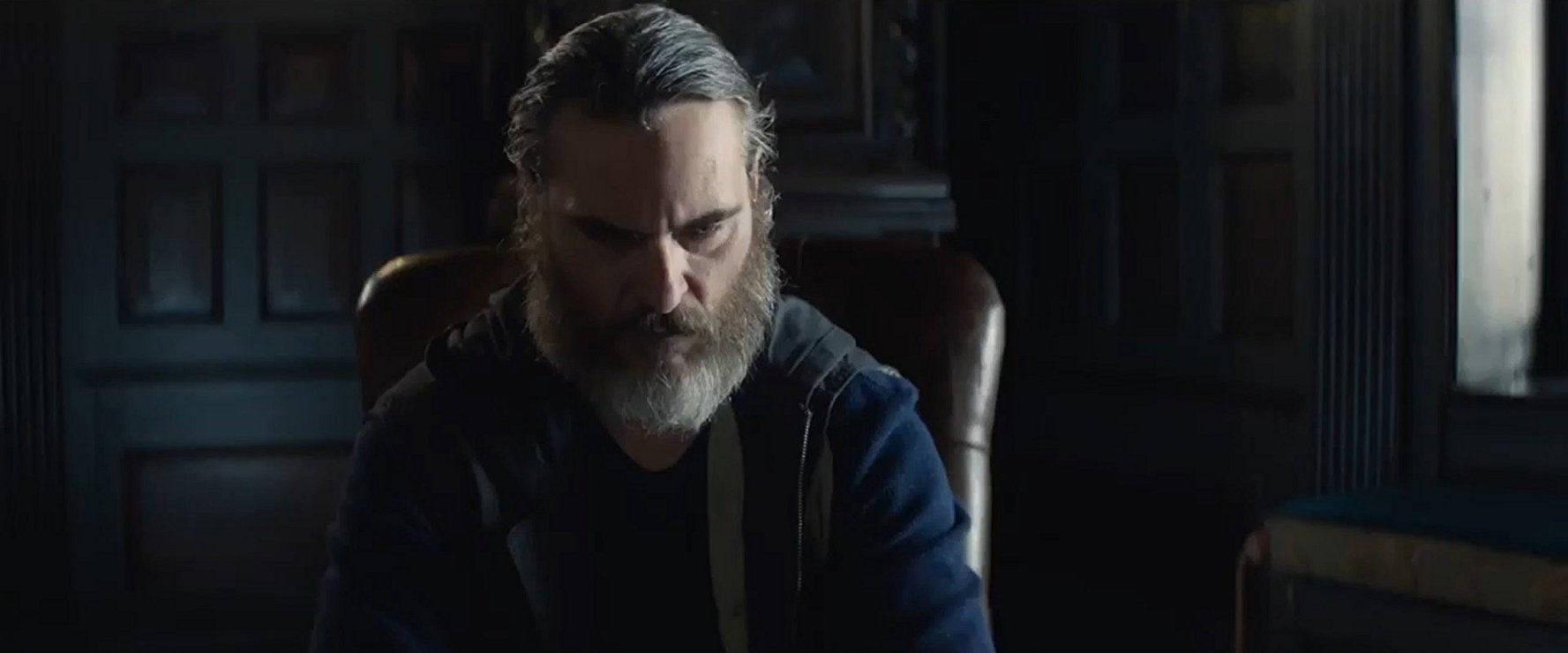Reviewed by Lee Hill
It is nice to see Lynne Ramsay back from Director Jail. In 2013, Ramsay had a very public falling out with the producers of the western Jane Got A Gun, which was completed by Gavin O’Connor. As often happens when a director is replaced early in shooting the rumour mill went into overdrive (see also Joseph Strick being replaced by George Cukor on Justine, Ken Russell taking over from Arthur Penn leaving Altered States, Terry Gilliam edging out Alex Cox on Fear Loathing in Vegas, ad infinitum). The good news is that Ramsay the auteur behind Ratcatcher and Morvern Calver is back and the sanitized version of Jane Got A Gun has become a future pub quiz question.
Adapted from a novella by Jonathan Ames, best known for satirical fiction like Wake-Up Sir! and the HBO series Bored to Death, Joaquin Phoenix is Joe, a veteran of America’s military adventures in the Middle East and a former FBI agent, He is now a haunted fixer of the messy problems of rich and powerful people. In the film’s opening sequence, we see him walking through an anonymous building and into a dark alleyway where he swiftly dispatches a henchman with a small hammer. Clad in a hoodie and jeans most of the time, Phoenix plays Joe like one of those black bears you are warned not to approach on visits to Canadian national parks. He looks harmless enough from a distance, but can kill in minutes if not seconds. It’s a remarkably lived-in performance and confirmation of Phoenix’s ability to bring originality and nuance what could have been genre autopilot.
Joe spends his down time looking after his mother (Judith Roberts) in a New York suburb that has seen better days. In addition to jarring flashbacks of his traumatic past as a soldier and federal agent, it is clear his childhood was equally unpleasant due to an abusive father. Slightly overweight and hidden by a beard that would make Hemingway seem metrosexual, Joe keeps things together with the aid of painkillers, old black and white movies and above all, being the dutiful son.
Joe’s go-between (John Dornan), whose cover resembles a small accountancy firm gone rogue, arranges for him to rescue Nina, the troubled teenage daughter of a Senate candidate. Nina is being held in a brothel that caters to an elite, but very creepy clientele. And from this point forward, Joe’s mission becomes a kind of journey through hell to find some redemption.
While the lone wolf hit man doing one last job to make everything right again is a familiar noir and neo-noir trope, Ramsay audaciously takes the viewer to a realm where hyper-realism meets surrealism. Ramsay’s gift for making the troubled inner states of her characters seem logical responses to grim reality is in peak form here. Working in an almost painterly fashion with her main collaborators – cinematographer Thomas Townend, editor Joe Bini and composer Johnny Greenwood – she sustains an atmosphere of ever shifting dread anchored by Phoenix’s immersive performance.
You may come out of the theatre feeling drained yet becalmed like Joe – trying to make sense of both the horror and the beauty of what you have seen, but you will be left with an experience best savoured in the dream-like darkness of the moviehouse. In a time where the case for box set television as the art form du jour is all too compelling, You Were Never Really Here is a raw, passionate case for the personal film.
Director: Lynne Ramsay
Writers: Jonathan Ames (book), Lynne Ramsay (written for the screen by)
Stars: Joaquin Phoenix, Dante Pereira-Olson, Larry Canady

Comments are closed, but trackbacks and pingbacks are open.